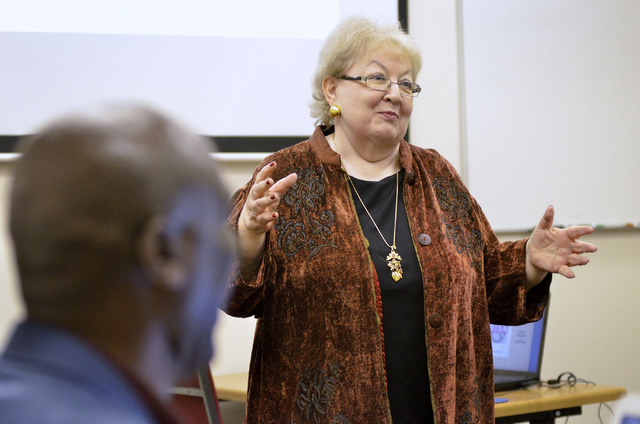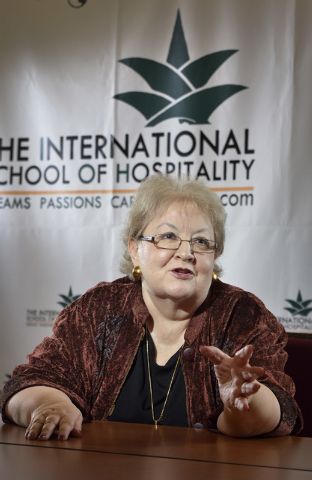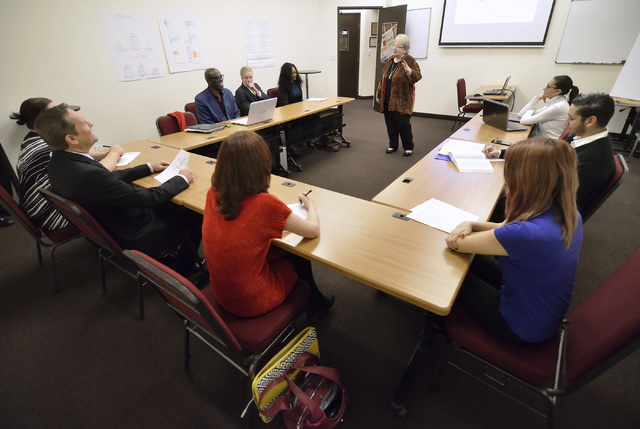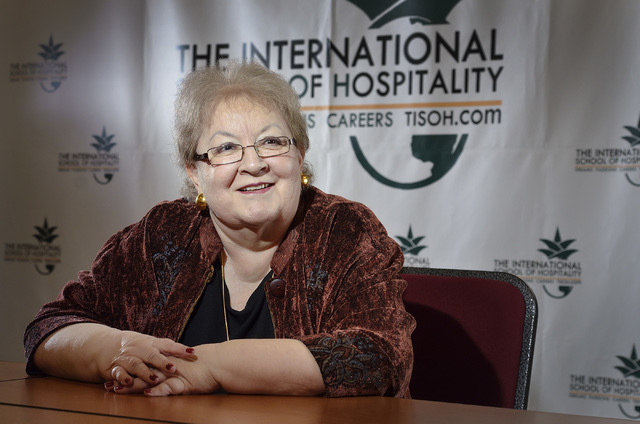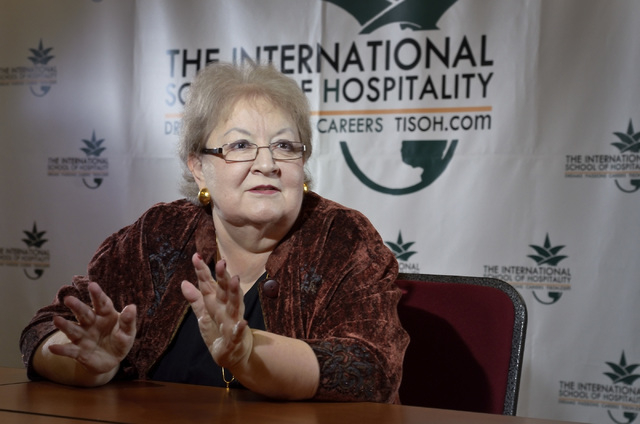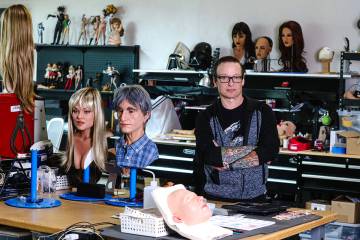Late bloomer thrives in developing tourism, hospitality programs
Patti Shock is a rock star.
Just ask the administrators who have recruited her help develop their tourism and hospitality programs.
A late bloomer in higher education — she didn’t start college until she was 31 — she received a bachelor’s degree at Southern Mississippi with grades that won her a fellowship to pursue a master’s degree. By the time she was done with school, she was overqualified to work in the hospitality industry where she thought she’d wind up.
So instead, she was asked to start a convention management program, the first in the United States, at Georgia State University.
The University of Nevada, Las Vegas, which was building a hotel management program, took notice and recruited her to build a similar degree program at UNLV in 1988. She ended up teaching there for 25 years, consulting on the side for the Las Vegas-based International School of Hospitality.
After retiring from UNLV in 2013 at 72, she didn’t want “to sit around and watch television,” taking on the development of classes and teaching at the adult education school known simply as TISOH.
Question: What’s the biggest difference between the programs at the International School of Hospitality and UNLV?
Answer: I teach the same things here that I taught at UNLV, but the students don’t have to take all the history, algebra, all those other kinds of classes. They get just the professional courses that will get them right to the industry. Obviously, a four-year college degree is optimal and makes you more well-rounded, but not everybody has the time or money and wants to get into student debt. Hardly anybody graduated at four years at UNLV. They get on a 10-year plan because they start working, they get married, they have families. This is a way to get in and get some intense work in. Also, at UNLV, I’d go into a class and see maybe 60 students. They become just faces. Here, the classes are between six and 12 so I get to know the students. It’s one of the reasons I decided to get into teaching.
Question: From where do most of your students come?
Answer: A large part of them come from Las Vegas, but others come from all over the United States and all over the world. There’s a program that goes for three months, two nights a week for three hours for three months. Then, there’s the fast track which is five weeks. It goes three hours a day, five days a week for five weeks. It’s the same program, but it’s compressed. In one of my classes, I have a student from Costa Rica, one from Brazil, one from Lebanon, one from Cuba and one from Egypt. My student from Cuba claimed asylum to get here.
Question: When you travel, do you observe the service from an academic perspective?
Answer: I can’t help it. I have friends who won’t go out to dinner with me because I’ll say, “He served that dish from the wrong side.” Or, “Look at that, they didn’t even fill the salt and pepper shakers.” But I also comment on the good things.
Question: Doesn’t that diminish your own enjoyment of the experience?
Answer: Not really. Italians love to bitch and I’m half Italian so that’s what we love to do.
Question: How does Las Vegas rate when it comes to hosting guests?
Answer: Among the meeting planners I know, I have some people who say it’s the best and I have some people who say it’s the worst. I guess it’s like anywhere. It depends on the individuals you deal with. I believe we’re a very hospitable town. I like to think we are because we have thousands of our graduates working in the industry and hopefully we taught them something.
Question: What’s our biggest strength?
Answer: We have more hotel rooms clustered in the smallest area than anyplace. It’s the ideal place to hold a convention because a lot of conventions can be housed in one hotel, while in other cities you may need two or three hotels. For citywide events, all of the hotels are in the same area. We have everything, every service. Our airport is just five minutes from the Strip. In Orlando or San Francisco, you’re 30 minutes from everything. You have to use shuttle buses for everything, which is an expense. Here, everything is contained and you don’t have to do that. It’s easy for everybody to get around.
My caterers hate this, but one of the nice things about Las Vegas is you can turn everybody loose at night because who wants to sit and have another rubber-chicken dinner when they can be out at one of our celebrity-chef restaurants or go to a show?
Question: Our biggest weakness?
Answer: Our biggest weakness is our image of being “Sin City.” There are a lot of industries that won’t meet here because of that image. They’re afraid that people won’t be at the meetings because they’ll be in the casino. Hawaii has the same problem, only they’re afraid they’ll be on the beaches instead of in the meeting rooms.
We’re known as sex, drugs and rock ‘n’ roll and even though prostitution is not legal in the county, it exists. And we’re going to get recreational marijuana very soon …
Question: Do you believe that’s true?
Answer: Oh yes. And we’ve got a lot of great music. Look at all the money they’re making in Colorado. Years ago, I was interviewed when they put it on the ballot the first time and I was asked if that would influence tourism, and I said, “Of course it will.” If you live in Alabama and you can come here and smoke pot and gamble … it’s a natural for Las Vegas.
Question: What elements of service make guests the most upset?
Answer: When people won’t listen to them. A lot of times, all people want is for someone to listen to their problems. If you ignore them, they get resentful and it builds up into something big. If you take care of problems when they’re little, that’s the best thing to do.
Question: What are your view on resort fees?
Answer: Everybody hates them. I don’t like them. You have tips, gratuities and service charges. Tips are voluntary. Gratuities are mandatory and they’re added to the bill. And then, there are service charges. The average person thinks the service charge goes to the service crew, like a gratuity. That’s not true because the hotels can take that service charge and use it somewhere else. I tell meeting planners to ask specifically how much is going where and what can be negotiated away. The hotels will tell you that you can’t do it. But if the meeting planner comes in and says, “My attendees will be in meetings, they won’t be using your pool or any of your resort amenities so why are you charging this?” If a hotel wants your business, they’ll negotiate. In some instances, they’re successful. It depends on the value of the piece of business to the hotel. But if you’re part of a social, military, religious, educational or fraternal group, you’re going to have to pay.



